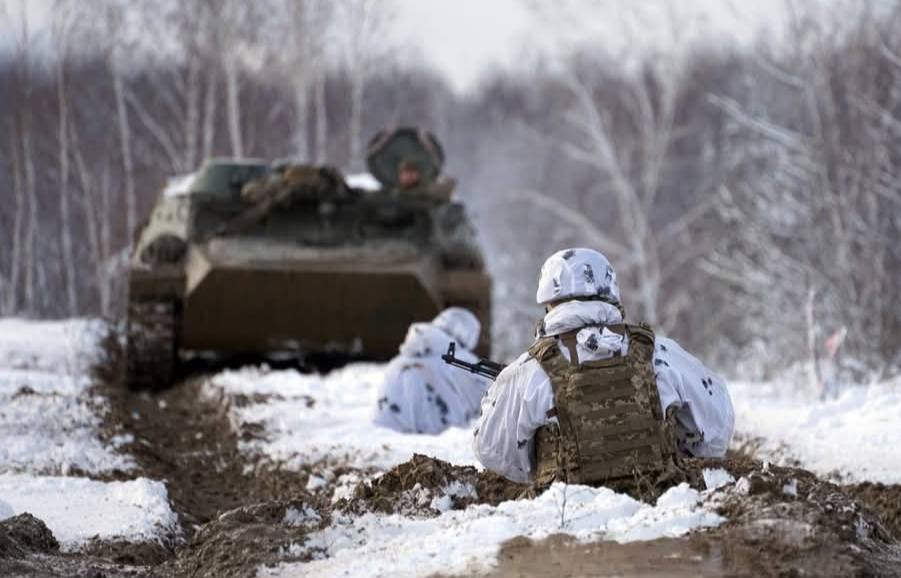For Putin, This War Has Become Existential: Victory or Death
For Vladimir Putin, the war in Ukraine has evolved into an existential struggle, meaning that for him, it's either victory or death. He sees no reason to live after suffering a geopolitical defeat in his twilight years, and thus, compromises where his victory is ambiguous or uncertain are not an option. This will influence his behavior during potential negotiations with Donald Trump. However, before considering those talks, let's examine Russia's ability to continue the war, focusing on its military capabilities and economy.
Arms
For now, the situation with manpower is clear: there are enough troops, and despite losses, the Russian forces are even managing to increase their presence in Ukraine. However, the situation with weaponry is quite catastrophic. According to various sources, Russia's military-industrial complex can produce no more than 200 new tanks per year. OSINT estimates indicate that approximately 3,000 tanks remain in storage, with only 18% in satisfactory condition, the rest in very poor condition. Overall, it is expected that these stocks will run out by 2025-2026, which means Putin could maintain the pace of war for another two years. North Korea has already begun playing a role in this, fulfilling the function of the "Ural of the Soviet Army during World War II." North Korea’s defense industry is supplying Russia with shells on a massive scale.
Moreover, Putin is shifting the economy toward a war footing, diverting large-scale resources to military production. Over the next two years, he must establish the production of new types of weapons to compensate for the potential depletion of Soviet-era stocks. However, there are several reasons to believe this won't be successful. First, the massive financial injections into the defense industry have led to high inflation. Second, there is a shortage of workers and skilled personnel. Putin's team is actively working on solutions, but by 2027, continuing the war at the current scale could prove extremely difficult. Moreover, not only does he need to maintain the war's tempo, but he also needs to restore the lost military potential.
Economy
Russia’s economy has demonstrated high resilience, undermining Western sanctions. Currently, the average Russian feels the benefits of the war, with rising salaries, growing job opportunities, increased infrastructure investment, and rising social benefits, particularly in poor regions where covert mobilization has been most noticeable. Russia’s GDP is expected to show a 4% growth this year, one of the highest rates in years.
However, the economic outlook for the coming years is less optimistic. Russia’s economy has entered stagflation—high inflation paired with a decline in production. Despite receiving income from oil and gas sales to cover current budget expenditures, this is clearly insufficient to invest billions in military production and infrastructure. The economy lacks private investment and access to capital markets, and such a model cannot sustain itself for long. According to various forecasts, Russia’s economy will decline by 2027, but a catastrophe is not expected. However, from 2027 onward, the Russian economy is likely to undergo systemic degradation, leading to technological backwardness and eventual collapse, similar to the fate of the Soviet Union.
This risk of degradation is Putin’s greatest challenge today, as winning the war but losing the economy would closely resemble his worst nightmare—the “geopolitical catastrophe” of the collapse of the USSR.
Putin's Actions
As we see, nothing catastrophic is expected for Russia before 2027, but after that, there could be a strategic defeat in the war. If Trump offers negotiations, Putin will approach them from a position of strength, dictating unacceptable terms for both us and Trump. Moreover, I believe that before Trump's inauguration, combat actions will intensify across all fronts to demonstrate the "inevitability of Russia's victory." However, based on what has been discussed, it would make no sense for Trump to negotiate with Putin on his terms, knowing that Putin's potential defeat after 2027 is likely.
My prediction is that in 2025, no meaningful negotiations will take place, primarily because of Putin's arrogant stance. I expect that he will continue to play the game—take what is on the table now, or things will get worse tomorrow. For example, as Russian forces approach the Dnipro region, he will threaten that if Ukraine doesn't accept the previously proposed terms, he will immediately declare this area part of Russia.
However, by 2026, the situation will begin to shift. The willingness for dialogue and a reasonable end to the war from the Russian side will start to change. Trump, who will not succeed in securing a quick victory through a ceasefire, will no longer rush into negotiations. The understanding that after 2027, irreversible processes could begin in Russia will strengthen his position.
This, of course, assumes that Ukraine withstands the pressure and the Ukrainian Armed Forces manage to hold the front without significant losses.




















